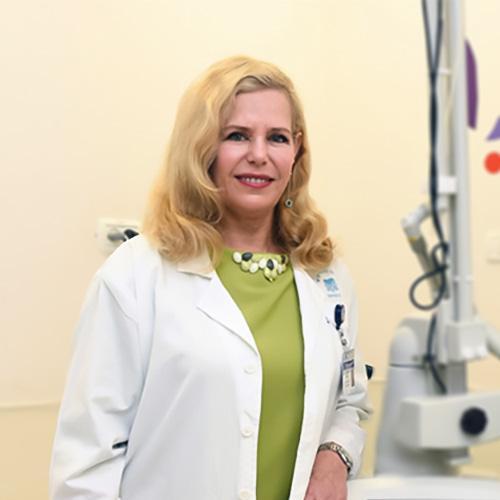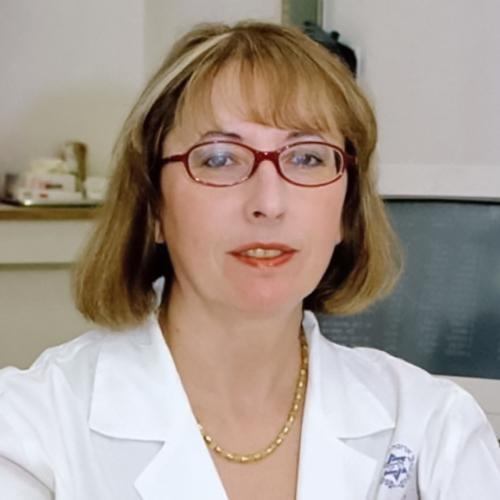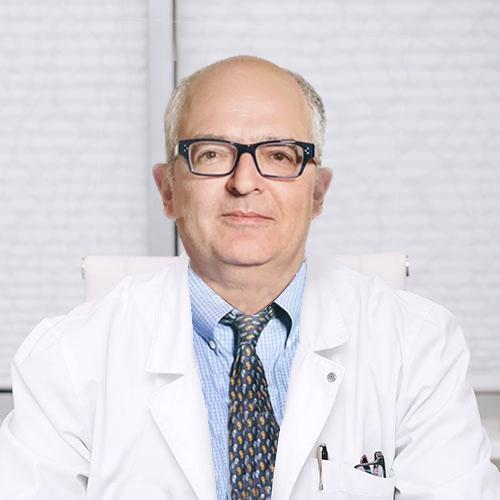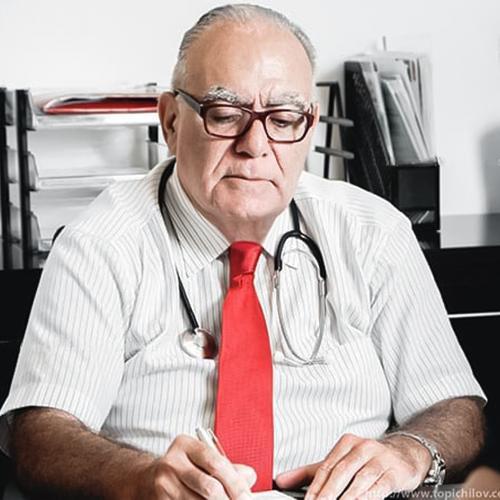Oncology
The Adult Oncology Department of the Maimonides Multidisciplinary Medical Center deals with the study, diagnosis (including early one), treatment and prevention of all malignant and benign neoplasms. Our doctors have extensive experience in successfully fighting against oncological diseases.
All the practice of The Adult Oncology Department of the Maimonides Multidisciplinary Medical Center based on the principles of Israeli medicine.

Everyone knows how expensive the treatment of a malignant neoplasm can be. Unfortunately, not everyone can afford the necessary modern diagnostic and treatment procedures.
We care about our patients, so at Maimonides Medical Clinic there is an opportunity to receive all or a part of the treatment for free. All thanks to the fact that the medical center works under the patronage of “Keren Or for our Child” the Charitable Foundationwhich covers the financial costs of patients for expensive treatment.
What diseases do the adult Oncology department seek help with?
Modern diagnostic methods in the Adult Oncology Department
The main work rule of the Maimonides clinic diagnostic department is to get the most accurate results in the shortest period of time.
Along with standard procedures, for example, the thyroid nodule puncture biopsy under ultrasound control, also unique and advanced biopsy techniques are used. These include:
- Mammotomy
exact stereotaxic biopsy of breast tumors is completely painless. Unlike the standard one, it does not require anesthesia, after it there is no wound or scar on the skin, and it lasts no more than 30 minutes. - Fusion prostate biopsy
the procedure is performed under the double control of ultrasound and MRI. It is extremely accurate and allows to avoid repeated biopsies.
Due to molecular genetic diagnostics , we can find known mutations that lead to certain tumors even at the preclinical stage, that is, when the tumor is not yet present.
In our partners laboratories you can order such an examination as genetic testing for inherited forms of cancer. Depending on the selected package, you will receive a result in which genes associated with various oncological diseases you have mutations:
- hereditary cancer screening panel + RNA panel (47 genes);
- screening panel for hereditary oncological diseases (60 genes);
- Multi-Cancer hereditary cancer screening panel (84 genes);
- screening panel for hereditary cancer diseases Invitae Multi-Cancer + RNA (84 genes);
- screening panel for hereditary oncological diseases (more than 145 genes);
- genetic screening for breast cancer (mutations in the genes that cause malignant breast diseases BRCA1, BRCA2).
Such modern procedure as Foundation One test is a complete research set on the genomic profile of detected molecular genetic changes in patient tumors to select individual targeted therapy and immunotherapy. This makes it possible to choose the most effective treatment for each person, considering the sensitivity of specific cells to certain medicine. This approach is called personalized oncology.
The determination of tumor markersis also used in complex diagnostics. These are certain substances, the concentration of which increases in the blood in certain tumors.
All our patients have access to the most modern medical imaging techniques, for example, PET-CT and all its varieties
- 18F-Fludeoxyglucose PET/CT is the most common study in malignant tumors, used to determine the exact localization, type of tumor, its size and stage of the disease.
- PSMA PET-CT. This study is conducted to determine the spread of the process in malignant prostate neoplasms. There are varieties of this examination using different isotopes, which are selected for each patient individually (GA68, 18F and 11C).
- 18F-DOPA PET-CT is the most accurate method of diagnosing neuroendocrine tumors, and malignant neoplasms of the thyroid gland.
If necessary, the patient is referred to such an innovative method as PET-MRI - it is the most accurate imaging method for lymphomas, leukemias, multiple myeloma, tumors of the brain, head, neck, liver and bones.

Methods of excellence and innovation in adult oncology
In general, the treatment in this clinic of oncology was built on the basis of the following scheme: radical surgical intervention (if possible, complete removal of the primary tumor) + chemotherapy + radial therapy.
These are the main methods of treatment, which can be combined differently in each individual case and complemented with another methods of impact on malignant disease (hormone therapy, targeted therapy, immunotherapy, bone marrow transplantation in oncohematology, etc.).
1. Current surgical interventions in oncology
All surgical insertion, if possible, are organ preserving. As an example with breast cancer in 90% of cases it is possible to avoid mastectomy and save the mammary gland.
It is for this purpose in The Oncology Department is actively used modern robotic surgical installations. Such surgeries are performed in case of cancerous tumors of the prostate, female genitalia, and the stomach. Using the help of such robots is less traumatic, accompanied by less blood loss, and recovery is much faster.
All surgical interventions are endoscopic. Very rarely the surgeons resort to open surgery with large incisions.
The main advantages of endoscopic surgery are:
- reduction of hospitalization period;
fast revival; - significantly lower risk of all postoperative complications;
- the absence of large postoperative scars on the skin, good cosmetic effect.
- the absence of large postoperative scars on the skin, good cosmetic effect.
Various types of such operational interventions can be:
- laparoscopy interventions in case of abdominal cavity organs oncology, prostate, internal female organs oncology;
- transurethral interventions in case of bladder cancer and prostate gland;
- hysteroscopy in case of uterus and cervix pathology;
- thoracoscopy in case of lungs, pleura malignant tumor.
2. Chemotherapy
This is the method of malignant tumors treatment, when certain medicinal drugs are introduced in the body of a person. They are cytostatics, which have an ability to stop the cell growth and reproduction. This cells divides rapidly and are malignant tumors.
As monotherapy, chemo is rarely used (only in palliative patients). As a rule, it is combined with surgery and / or radial therapy.
Besides the standard input way of chemotherapeutic agents – systemically into a vein, the other routes of administration in this oncology clinic are used too. This is done in order to reduce the risk of side effects developing (intracerebral chemotherapy, chemoembolization).
Immunotherapy does not belong to classical chemo, but is actively applies by modern medicine in the complex treatment of oncological diseases. We use only modern drugs for immunotherapy, for example, pembrolizumab (Keytruda®), nivolumab (Opdivo®), avelumab (Bavencio®), durvalumab (Imfinzi®), pazopanib (Votrient®), imatinib (Gleevec®), rapamycin (Rapamune®), palbociclib (Ibrance®).
Targeted therapy is a generalized concept which unites different antitumor drugs and also cannot be compared to classical chemotherapeutic drugs. Target drugs are aimed on the cells of specific neoplasm. They "trained" to block the signals which promotes tumor growth and to "set the command" for the self-liquidation of all malignant cells in the human body. An example of current targeted drugs are: trastuzumab, lapatinib, pertuzumab (Pertuzumabum), neratinib, nexavar (Nexavar®), lenvatinib (Lenvatinibum), pazopanib (Votrient®), sunitinib (Sutent®), sorafenib (Nexavar®), nilotinib (Tasigna®) ), temsirolimus (Torisel®), everolimus (Afinitor), Keytruda® (Keytruda). This is a large group of inhibitor drugs.
3. Radial therapy
This is malignant tumors treatment method with ionizing radiation irradiate. Radial therapy can be remote, when the source of irradiation is outside the body (linear quickening). Also used contact, method such as brachytherapy when the radioactive material is placed in a capsule and implanted directly into the tumor tissue. In this way, there are significantly less side effects, because surrounding healthy tissues may not suffer from irradiation.
The one of radial therapy types is radioiodine therapy This is the treatment with radioactive isotopes of iodine in thyroid cancer. The procedure is very effective and can be used as an alternative to surgical removal of the thyroid slough.
Therefore, all patients of the Maimonides Medical Clinic have an access to modern and effective methods of diagnosis and treatment of any oncological diseases. All procedures are selected individually, based on the main diagnosis and characteristics of the tumor cells. Every case controlled by our partners – Israeli oncologists from the best specialized clinics. This is why there can be no doubt about the quality of services.
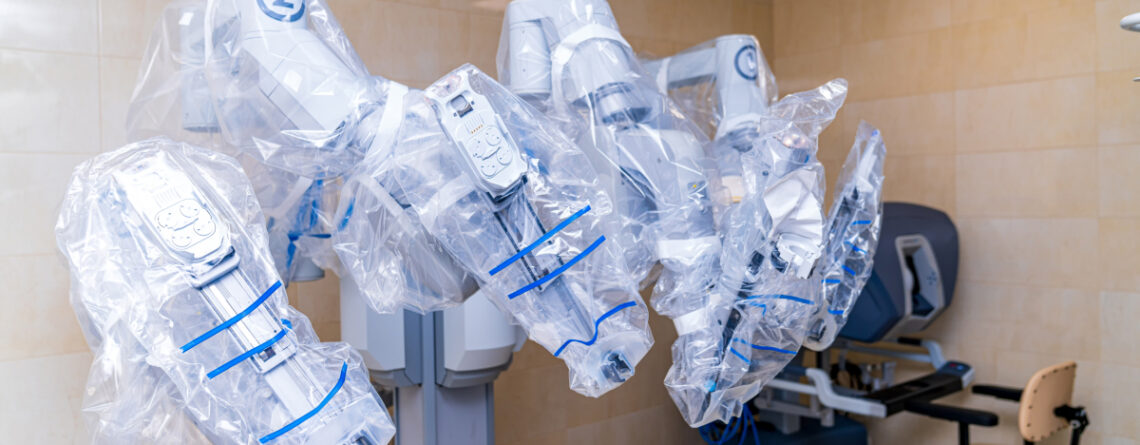
Importantly!
Clinical research programs in Israel are now available to foreign residents.
Find out program details.


